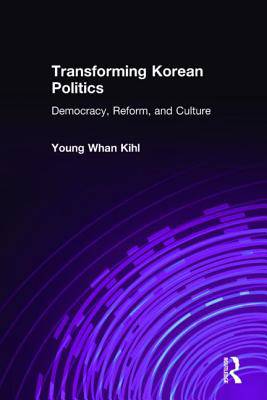
Je cadeautjes zeker op tijd in huis hebben voor de feestdagen? Kom langs in onze winkels en vind het perfecte geschenk!
- Afhalen na 1 uur in een winkel met voorraad
- Gratis thuislevering in België vanaf € 30
- Ruim aanbod met 7 miljoen producten
Je cadeautjes zeker op tijd in huis hebben voor de feestdagen? Kom langs in onze winkels en vind het perfecte geschenk!
- Afhalen na 1 uur in een winkel met voorraad
- Gratis thuislevering in België vanaf € 30
- Ruim aanbod met 7 miljoen producten
Zoeken
€ 290,45
+ 580 punten
Uitvoering
Omschrijving
Over the past fifteen years, South Korea has transformed itself from an authoritarian government into a new democracy with a vibrant capitalist economy. Modernization, democratization, and globalization have played important roles in this transformation, and have greatly influenced the programs and policies of Korea's Sixth Republic. Covering developments through the 2003 elections, this book shows how the South Korean government and society have been shaped not only by the dynamics of these forces, but also by their interaction with the cultural norms of a post-Confucian society. The author provides a conceptual framework and baseline for examining political developments in Korea, and offers an analysis of the factors that are transforming Korean institutions, society, and politics. He discusses the forces shaping Korea's political economy and the performance of successive ROK governments, and also highlights the challenges faced by the newly elected administration of Roh Moo Huan, the North Korean issue, and more.
Specificaties
Betrokkenen
- Auteur(s):
- Uitgeverij:
Inhoud
- Aantal bladzijden:
- 422
- Taal:
- Engels
Eigenschappen
- Productcode (EAN):
- 9780765614278
- Verschijningsdatum:
- 31/03/2004
- Uitvoering:
- Hardcover
- Formaat:
- Genaaid
- Afmetingen:
- 158 mm x 235 mm
- Gewicht:
- 725 g

Alleen bij Standaard Boekhandel
+ 580 punten op je klantenkaart van Standaard Boekhandel
Beoordelingen
We publiceren alleen reviews die voldoen aan de voorwaarden voor reviews. Bekijk onze voorwaarden voor reviews.









